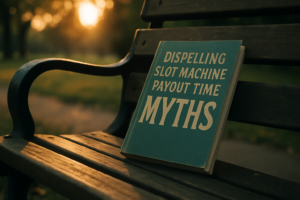Understanding Value Betting
Recognizing value in betting transforms a casual approach into a strategic endeavor. Understanding how to identify value bets is key to long-term success.
Definition of Value Betting
Value betting occurs when the probability of an outcome is greater than the implied probability of the odds offered by a bookmaker. For example, if a bookmaker offers odds of 3.0 (or 2/1), they imply a 33.3% chance of success. I consider a bet valuable if I believe the true probability is higher, say 40%. Identifying these discrepancies is fundamental in exploiting value.
Importance of Finding Value
Finding value impacts profitability and sustainability in betting. Without value, consistent long-term profits are unlikely, given the bookmaker’s edge. By concentrating on bets that provide value, I maximize potential returns and minimize losses. Understanding that effective betting isn’t about quantity but quality of bets is crucial. Emphasizing strategic analysis over impulse betting strengthens this approach.
Key Principles of a Good Bet
Understanding the key principles of a good bet is essential for any bettor who aims to achieve long-term success. These principles help identify valuable betting opportunities and optimize decision-making.
Odds vs. Probability
Odds and probability form the backbone of value betting. Odds reflect the bookmaker’s assessment of a particular outcome’s likelihood. Probability is the actual chance of the event occurring. For example, if odds are set at 4.0, this corresponds to a 25% implied probability. A good bet surfaces when my assessment of the probability indicates a higher chance of occurrence. I compare these percentages to identify if the odds are in my favor. Consistently recognizing discrepancies is crucial for maintaining an edge in betting.
Calculating Expected Value
Expected value (EV) quantifies how much I can expect to gain or lose by placing a bet repeatedly over time. Calculating EV involves evaluating the potential return and assessing the likelihood of different outcomes. I use the formula: (Probability of Winning × Amount Won per Bet) – (Probability of Losing × Amount Lost per Bet). A positive EV indicates a profitable bet. By focusing on bets with a positive EV, I aim to generate substantial returns and mitigate risks, enhancing overall betting success.
Strategies for Identifying Value Bets

Identifying value bets involves strategic methods that enhance my ability to find advantageous opportunities. I’ll explore how:
- analyzing market movements
- utilizing statistical analysis
- maintaining bankroll management
contribute to successful value betting.
Analyzing Market Movements
Market movements reflect shifts in betting odds due to various factors. I monitor these changes to identify potential value bets. If odds suddenly drop, it might indicate insider information or increased public interest. Conversely, if odds drift wider, there may be an opportunity for value. Understanding why odds shift helps me decide whether to place a bet.
Utilizing Statistical Analysis
Statistical analysis forms the backbone of identifying value bets. I use data from past performances, player statistics, and situational factors to estimate true probabilities. Applying models like Poisson distribution aids in calculating expected outcomes, enabling me to compare them with bookmakers’ odds. This comparison assists in identifying potential mismatches and exploiting value opportunities.
Importance of Bankroll Management
- Bankroll management ensures sustained betting activity while minimizing losses.
- I allocate a specific percentage of my bankroll for each bet based on confidence levels and potential value.
- This methodical approach helps prevent significant financial losses and enables me to capitalize on value bets strategically.
- Proper bankroll management fosters consistent, long-term profitability in value betting.
Common Mistakes in Value Betting
Common mistakes can derail the profitability and success of value betting. Understanding these pitfalls helps enhance decision-making and improve outcomes.
Misjudging Odds
Misjudging odds often results from inadequate research and analysis. Bookmakers set odds based on their probabilities, so it’s crucial to accurately assess the true likelihood of an event and compare it to the odds provided. Without this, bettors might accept odds that don’t offer genuine value. Consistent practice, statistical analysis, and staying informed about market trends can aid in refining assessments.
Overconfidence in Selections
Overconfidence can skew judgment and promote riskier decisions. Many bettors assume their selections are inherently strong without thorough analysis, which leads to disregarding actual probabilities. A disciplined approach, focusing on evaluating probabilities rather than relying on gut feeling or past successes, mitigates this issue. Seeking confirmation through data-backed insights ensures a pragmatic betting strategy.
Tools and Resources for Value Betting
Effective resources and tools enable me to refine my value betting strategy and increase the potential for successful outcomes.
Betting Exchanges and Platforms
Betting exchanges like Betfair offer me an alternative to traditional bookmakers by allowing peer-to-peer wagering. I place bets and lay bets, which provides an opportunity to find different odds and increase my chances of identifying value. These platforms often have lower margins compared to bookmakers, which can benefit me when seeking favorable odds.
Analytical Tools and Software
Analytical tools, such as OddsPortal, help me track historical odds and identify patterns that may signify value bets. Software like Bet Angel or RebelBetting offers advanced features for analysis and automation, enabling me to quickly evaluate market movements and probabilities. By leveraging these tools, I enhance my analytical capabilities, ensuring a data-driven approach to value betting.








